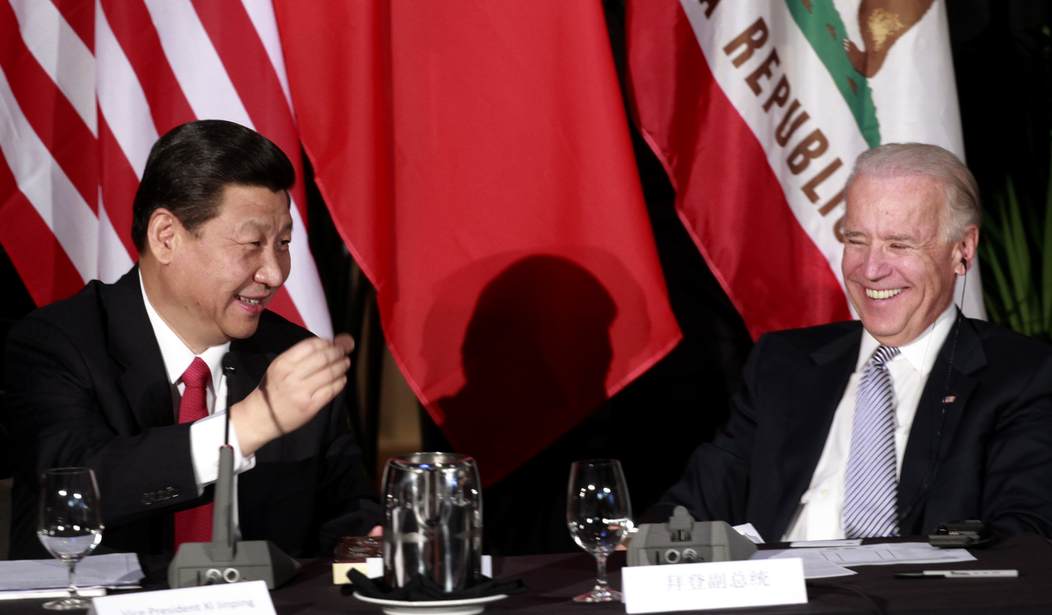In his final state of the nation speech Monday, Philippine President Rodrigo Duterte defended his refusal to confront China over Beijing's seizure and fortification of his country's islets in the South China Sea.
"It will be a massacre if I go and fight a war now," said Duterte. "We are not yet a competent and able enemy of the other side."
Duterte is a realist. He will not challenge China to retrieve his lost territories, as his country would be crushed. But Duterte has a hole card: a U.S. guarantee to fight China, should he stumble into war with China.
Consider. Earlier this month, Secretary of State Antony Blinken assured Manila we would invoke the U.S.-Philippines mutual security pact in the event of Chinese military action against Philippine assets.
"We also reaffirm," said Blinken, "that an armed attack on Philippine armed forces, public vessels or aircraft in the South China Sea would invoke U.S. mutual defense commitments under Article IV of the 1951 U.S.-Philippines Mutual Defense Treaty."
Is this an American war guarantee to fight the People's Republic of China, if the Philippines engage a Chinese warship over one of a disputed half-dozen rocks and reefs in the South China Sea? So it would appear.
Why are we threatening this?
Is who controls Mischief Reef or Scarborough Shoal a matter of such vital U.S. interest as to justify war between us and China?
Tuesday, in Singapore, Defense Secretary Lloyd Austin reaffirmed the American commitment to go to war on behalf of the Philippines, should Manila attempt, militarily, to retrieve its stolen property.
Recommended
Said Austin: "Beijing's claim to the vast majority of the South China Sea has no basis in international law. ... We remain committed to the treaty obligations that we have to Japan in the Senkaku Islands and to the Philippines in the South China Sea."
Austin went on: "Beijing's unwillingness to ... respect the rule of law isn't just occurring on the water. We have also seen aggression against India ... destabilizing military activity and other forms of coercion against the people of Taiwan ... and genocide and crimes against humanity against Uyghur Muslims in Xinjiang."
The Defense secretary is publicly accusing China of crimes against its Uyghur population in Xinjiang comparable to those for which the Nazis were hanged at Nuremberg.
Austin has also informed Beijing, yet again, that the U.S. is obligated by a 70-year-old treaty to go to war to defend Japan's claims to the Senkakus, half a dozen rocks Tokyo now occupies and Beijing claims historically belong to China.
The secretary also introduced the matter of Taiwan, with which President Jimmy Carter broke relations and let lapse our mutual security treaty in 1979.
There remains, however, ambiguity on what the U.S. is prepared to do if China moves on Taiwan. Would we fight China for Taiwan's independence, an island President Richard Nixon and Henry Kissinger said in 1972 was "part of China"?
And if China ignores our protests of its "genocide" and "crimes against humanity" against the Uyghurs, and of its human rights violations in Tibet, and of its crushing of democracy in Hong Kong, what are we prepared to do?
Sanctions? A decoupling of our economies? Confrontation? War?
This is not an argument for threatening war, but for an avoidance of war by providing greater clarity and certitude as to what the U.S. response will be if China ignores our protests and remains on its present course.
Some of us can still recall how President Dwight Eisenhower refused to intervene when Nikita Khrushchev ordered Russian tanks into Budapest to drown the 1956 Hungarian revolution in blood. Instead, we welcomed Hungarian refugees.
When the Berlin Wall went up in 1961, President John F. Kennedy called up the reserves and went to Berlin to make a famous speech, but did nothing.
"Less profile, more courage!" was the response of Cold War hawks.
But Kennedy was saying, as Eisenhower had said by his inaction in Hungary, that America does not go to war with a great nuclear power such as the Soviet Union over the right of East Germans to flee to West Berlin.
Which brings us back to Taiwan.
In the Shanghai Communique signed by Nixon, Taiwan was conceded to be a "part of China." Are we now going to fight a war to prevent Beijing from bringing the island home to the "embrace of the motherland"?
And if we are prepared to fight, Beijing should not be left in the dark. China ought to know the risks it would be taking.
Cuba is an island, across the Florida Strait, with historic ties to the United States. Taiwan is an island 7,000 miles away, on the other side of the Pacific.
This month, Cubans rose up against the 62-year-old Communist regime fastened upon them by Fidel and Raul Castro.
By what yardstick would we threaten war for the independence of Taiwan but continue to tolerate 60 years of totalitarian repression in Cuba, 90 miles away?

























Join the conversation as a VIP Member